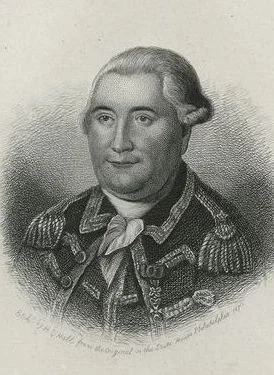The Chevalier de la Luzerne Unites The States
Chevalier de la Luzerne was the French Ambassador to the United States during the American Revolutionary War.
Luzerne contributed heavily to the early development of the United States, including supporting the war financially and pushing forward the ratification of the Articles of Confederation.
Chevalier de la Luzerne
Truthfully, the Chevalier de la Luzerne was not a Founding Father.
He was not even American.
Luzerne was French.
After the United States’ independence was recognized by France, they sent an Ambassador to Philadelphia. That man was Luzerne.
Despite this, the Chevalier’s influence on the young nation was great.
Coming to America
Luzerne was an experienced military man who achieved the rank of Major General during the Seven Years War. He then earned his stripes as a diplomat by spending two years as a Minister to Bavaria.
The Chevalier was sent to the United States with the goal of preserving French interests, both as a combatant in the Revolutionary War and as a trading partner with the new nation.
Luzerne was dedicated to the ideals of the American Revolution and as such was welcomed by the Continental Congress.
Working With The Continental Congress
Luzerne realized the Continental Army was in a dire situation when it came to supplying the troops. To this end, the Chevalier loaned the United States money from his vast personal fortune to purchase food for the soldiers.
Due to his generosity, the Continental Congress was happy to work with Luzerne to fulfill many of the demands of France.
Most notable of these desires was an agreement that the Americans would not sign a peace treaty with Britain before France did the same. This was to ensure that the United States did not find a way out of the war and leave the French fighting on a different front with a substantial portion of their Navy across the sea.
The Continental Congress agreed to his request, realizing that to leave the French hanging like this after all their support would be…well…not cool. They did want to be friendly with other nations should they win the war.
Articles of Confederation
The Chevalier found himself having to deal with both the Continental Congress and the separate States. As no new national government had been officially established, Luzerne was technically the diplomat to thirteen separate countries.
He knew it would be easier for international diplomacy (both for himself and the Unites States) if the Americans unified under one banner.
Due to this, Luzerne was heavily in favor of the Articles of Confederation. Unfortunately, Maryland had long been delaying ratification of this new government.
Maryland’s decision not to sign was based around western lands. Maryland was determined to have all property that was not part of the original colonies should be ceded to the Federal government.
While preparing to defend their State from the British Navy, the people of Maryland asked Luzerne for French support. The Chevalier used the opportunity to force Maryland’s hand and have them sign the Articles in order receive French troops.
The work of Luzerne led to the creation of the first government of the United States of America. The western lands would eventually be ceded and consolidated under the Northwest Ordinance of 1787.
Afterwards
After the American Revolutionary War ended, the Chevalier returned to Europe.
Due to his performance in the United States, Luzerne received the most important post a French diplomat could have: Minister to Great Britain.
Unfortunately, the Chevalier fell ill and passed away after just three years of service in London.
If you would like to learn more about foreigners who helped create the United States, check out these articles on Baron Von Steuben and Bernardo de Galvez.
For further reading on diplomacy in the American Revolution (and, therefore, Luzerne) pick up a copy of ‘The Diplomacy of the American Revolution’ from out affiliate Amazon link below.
Please remember to subscribe to our email list for a new Founder every day!






